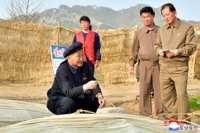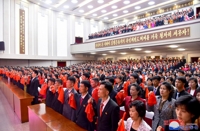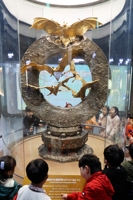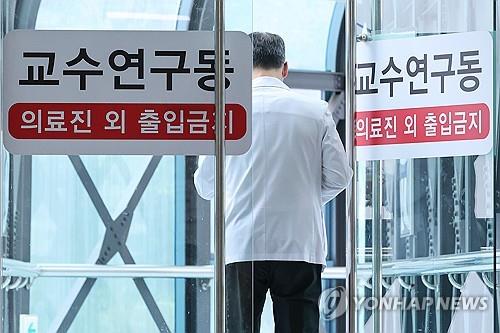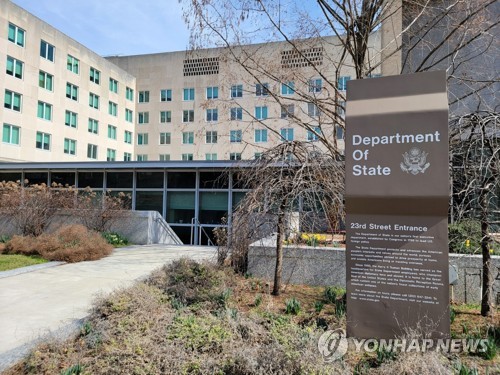Today in Korean history
Aug. 15
1945 -- Korea is liberated from Japan's colonial rule, which began in 1910. On the same day, Yeo Un-hyung (1886-1947), a left-leaning nationalist, sets up a national foundation preparation committee.
1948 -- The government of the Republic of Korea, or South Korea, is established.
1953 -- The South Korean government moves the country's capital back to Seoul from Busan, a port city 453 kilometers southwest of Seoul. The government made the switch to Busan after North Korea started the Korean War in June 1950.
1974 -- Moon Se-kwang, a 23-year-old Korean-Japanese man, attempts to assassinate then President Park Chung-hee at a ceremony to mark the anniversary of Korea's liberation from Japan's colonial rule. Park was not injured, but his wife, Yook Young-soo, suffered a fatal gunshot wound to the head. Moon was arrested, sentenced to death and executed.
1995 -- The South Korean government starts to demolish a building used as the Japanese governor-general's office during Japan's colonization of the Korean Peninsula.
2000 -- The first reunions of separated families from South and North Korea since the division of the peninsula in 1948 are held in Seoul and the North's capital Pyongyang. The reunions were arranged in accordance with an agreement at the historic inter-Korean summit in Pyongyang in June 2000.
2005 -- South and North Korea hold a reunion of 40 separated families via video for the first time.
2010 -- South Korean President Lee Myung-bak proposes a three-stage reunification plan with North Korea and introduces a "unification tax" to prepare for the huge financial burden expected if the two Koreas are reunited.
2012 -- South Korea expresses regret after Japanese Cabinet members and lawmakers resumed the long-condemned ritual of paying homage at a Tokyo shrine seen as a symbol of Japan's imperialistic past.
2014 -- Pope Francis prays for those who lost their lives in the Sewol ferry sinking that claimed about 300 lives and met with representatives of the survivors and bereaved families during his South Korean trip.
(END)
-
 Ateez member Yunho throws first pitch at MLB match between Dodgers, Mets
Ateez member Yunho throws first pitch at MLB match between Dodgers, Mets -
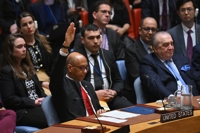 S. Korea supports resolution backing U.N. membership of Palestine
S. Korea supports resolution backing U.N. membership of Palestine -
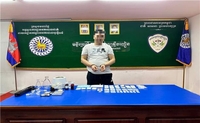 Chinese man behind drug scam targeting teens nabbed in Cambodia
Chinese man behind drug scam targeting teens nabbed in Cambodia -
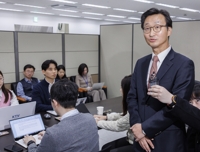 S. Korea, U.S. to hold 1st round of defense cost sharing talks this week
S. Korea, U.S. to hold 1st round of defense cost sharing talks this week -
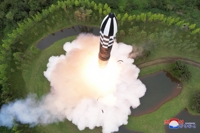 Experts see possibility of N.K. conducting nuclear test before U.S. presidential vote
Experts see possibility of N.K. conducting nuclear test before U.S. presidential vote
-
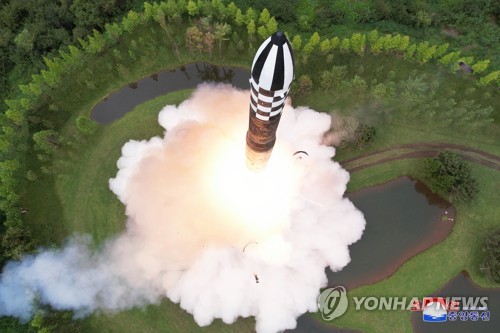 Experts see possibility of N.K. conducting nuclear test before U.S. presidential vote
Experts see possibility of N.K. conducting nuclear test before U.S. presidential vote -
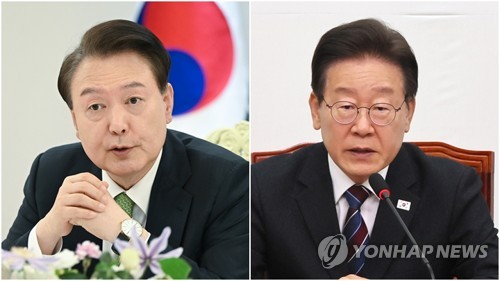 Details of meeting between Yoon, opposition leader undecided: presidential office
Details of meeting between Yoon, opposition leader undecided: presidential office -
 Looming weekly closure of major hospitals feared to worsen medical service crisis
Looming weekly closure of major hospitals feared to worsen medical service crisis -
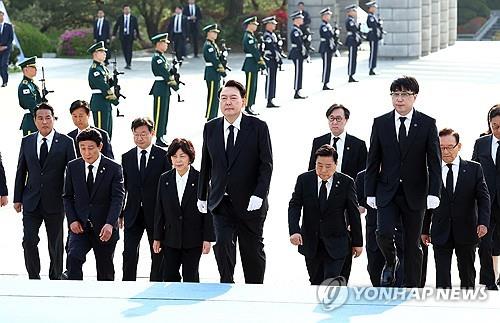 Yoon's approval rating sinks to lowest point since taking office
Yoon's approval rating sinks to lowest point since taking office -
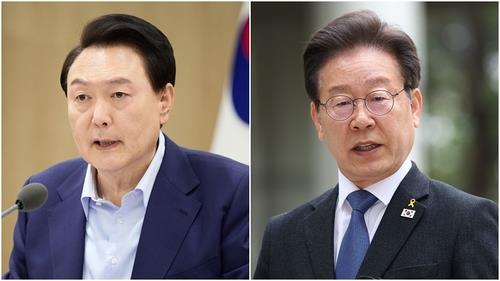 (LEAD) Yoon proposes first-ever meeting with opposition leader
(LEAD) Yoon proposes first-ever meeting with opposition leader
-
 (LEAD) Hybe to file complaint against sublabel executives over internal conflict
(LEAD) Hybe to file complaint against sublabel executives over internal conflict -
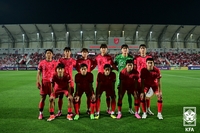 10-man S. Korea lose to Indonesia to miss out on Paris Olympic football qualification
10-man S. Korea lose to Indonesia to miss out on Paris Olympic football qualification -
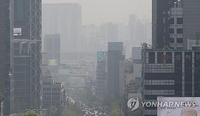 S. Korea reports highest suicide rate, ultra fine dust level among OECD nations: data
S. Korea reports highest suicide rate, ultra fine dust level among OECD nations: data -
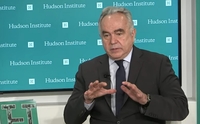 U.S. will take steps for three-way engagement on nuclear deterrence with S. Korea, Japan: Campbell
U.S. will take steps for three-way engagement on nuclear deterrence with S. Korea, Japan: Campbell -
 (3rd LD) Hybe to file complaint against sublabel executives over internal conflict
(3rd LD) Hybe to file complaint against sublabel executives over internal conflict

















